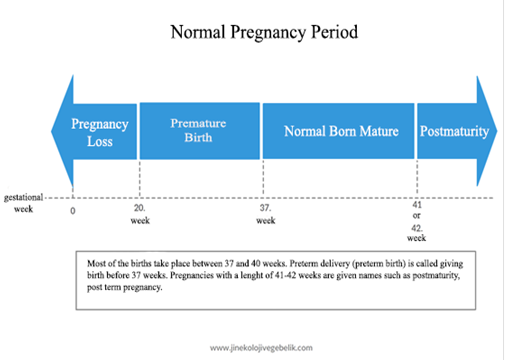
While the time it takes for babies to complete their development in the womb varies depending on many factors, they reach the stage of development that allows them to survive outside the womb by the end of the 37th week of pregnancy. Babies born before this period are defined as preterm or premature babies because they are born prematurely. Today, thanks to the developments in the field of Neonatal Science, that is, Neonatology, premature babies have the chance to live a healthy life during this sensitive period. However, survival for these tiny bodies requires a process of struggle, and lung development is of great importance in this process.
In prematurity, lung development and lung function are critical for survival. For this reason, respiratory treatment of babies born prematurely requires great care and attention. Since the lungs may be partially developed or underdeveloped depending on the degree of prematurity, it may be difficult to provide adequate respiratory function in this group of newborns.

For more than 30 years, Chiesi has been working with the neonatology community in the struggle for the life of these tiny warriors who struggle against difficulties to survive and develop, with a dedication to healthier, higher survival rates.
Today, within the framework of this collaboration, Chiesi has ensured the survival of more than 6 million premature babies in more than 100 countries. Chiesi has carried their studies and competence in this direction to the field of most appropriate clinical application techniques.
Neonatal Respiratory Syndrome (RDS) is a typical condition for premature babies and is a complex clinical condition in which multiple findings are defined due to inadequate development of the respiratory system. The severity and frequency of this condition depends on the degree of prematurity, and the risk of developing it is higher in babies born before the 28th week.
Respiratory failure in babies with RDS; It is caused by both the underdeveloped lungs and the insufficient level of surfactant substance that forms a biofilm by surrounding the inner wall of the lung air sacs. The physiological function of the surfactant substance is to prevent collapse during exhalation by reducing the surface tension of the lungs and keeping the air sacs open. The absence or insufficiency of the surfactant substance in the lungs causes breathing difficulties, low oxygenation, increased breathing effort and the need for respiratory support. In RDS, the surfactant administered externally to the lungs is important in terms of both eliminating the deficiency and providing raw materials for the body to produce its own surfactant (Source: Hacettepe University Intensive Care Journal).
The amount of surfactant in the lung pool of a premature baby is significantly lower than that of a full-term newborn. For this reason, when necessary, the surfactant administered externally to the lungs completes the missing amount in the pool and enables the formation of a biofilm layer within the air sacs.
Chiesi supports premature babies in our country in their life journey with the surfactant preparation used in this group of babies with neonatal respiratory failure.
Apnea is a very common problem in neonatal intensive care units. It can be a symptom of many serious diseases, especially in premature babies, and can also be observed due to immature control of the respiratory system. Inadequate development of the respiratory system and respiratory center in the brain is a common problem for premature babies and life-threatening events such as respiratory arrest (apnea); Premature is more common the less developed the baby is and the lower the baby's birth weight. This condition usually develops as a sudden respiratory arrest lasting more than 20 seconds on the 2nd and 3rd days of birth. Although many mild cases can be treated with respiratory support, caffeine-containing medications are administered to prevent respiratory arrest when necessary. Caffeine acts as a stimulant on the central nervous system in the treatment of apnea. Caffeine is preferred due to its long half-life, wide safety margin and low side effect profile (Source: Selçuk University Medical Journal).
Chiesi has introduced its Caffeine citrate formulation for treatment of “Apnea of Prematurity”.
Chiesi continues its R&D studies, aiming to support premature babies in their difficult journey, and works on many research projects to develop alternative treatments, for example, against brain injuries and bronchopulmonary dysplasia (one of the most common lung disorders among premature babies).
Chiesi continues to make a significant impact in this field and is paving the way to a brighter future for premature babies around the world.